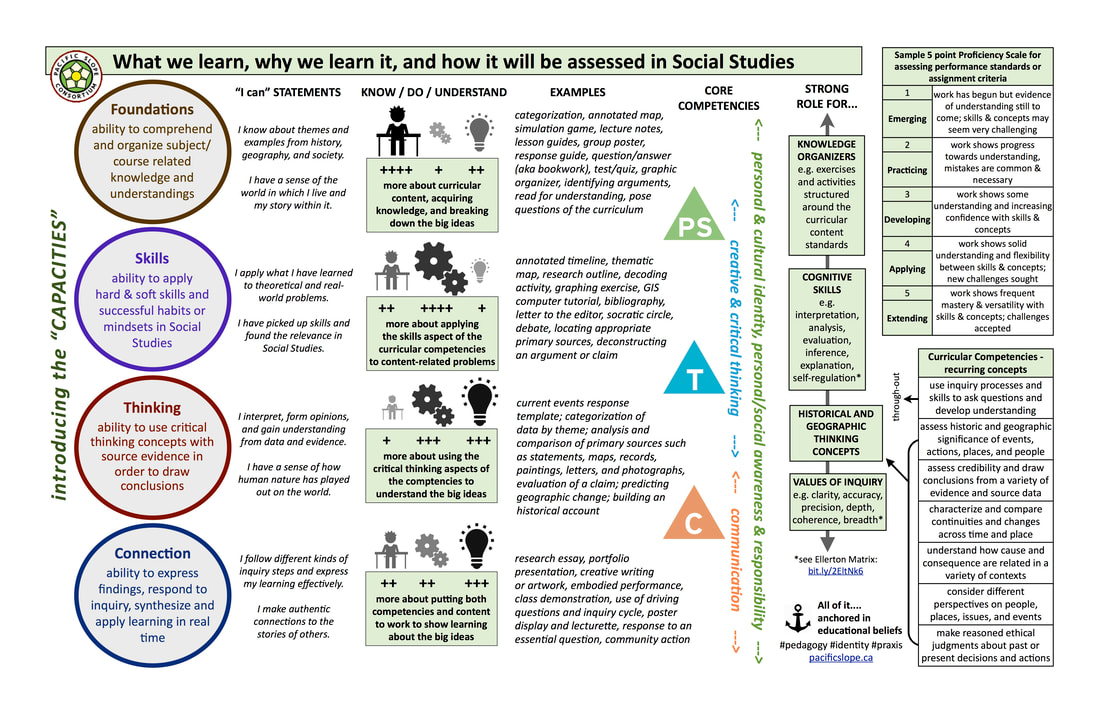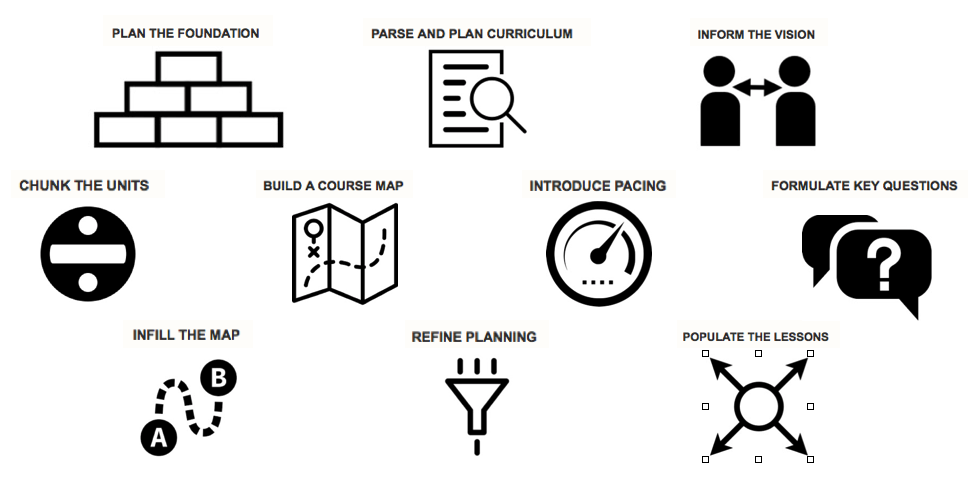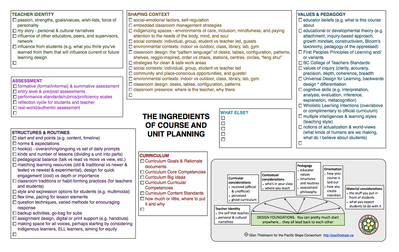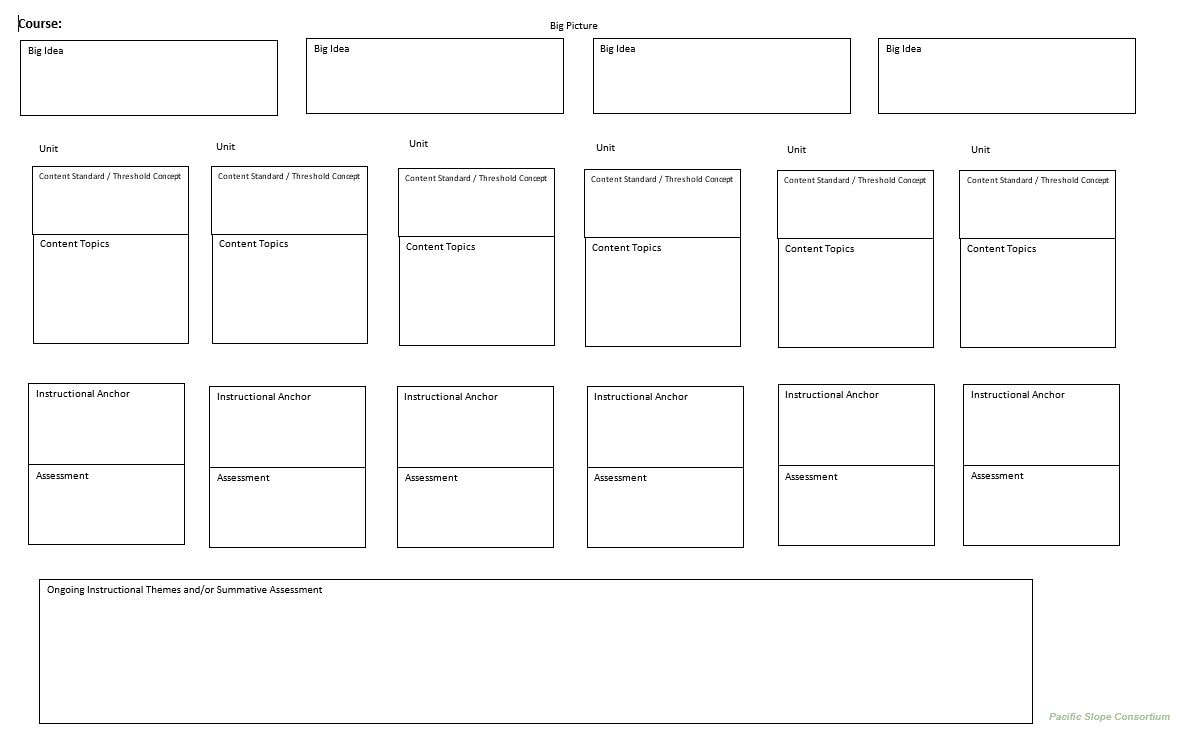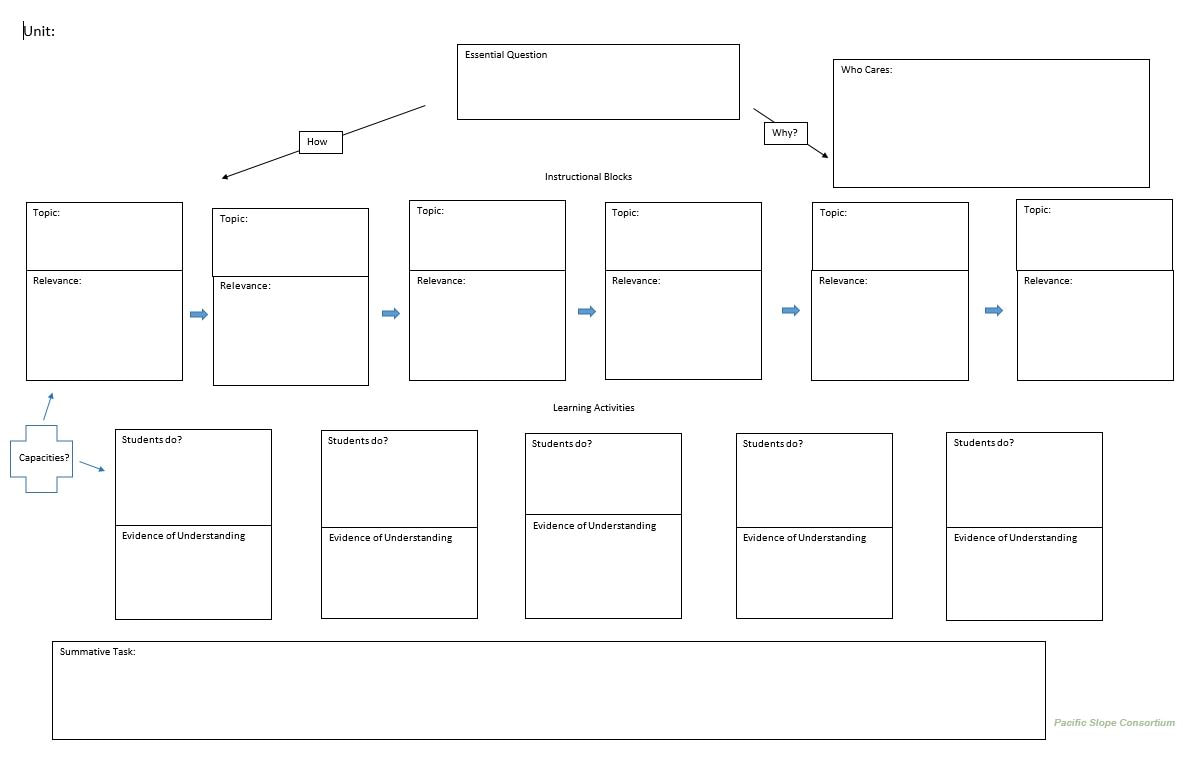Baseline Course Design
Background
|
This is not a prescription for how to design or teach Social Studies. It is a set of suggested approaches, based on the consideration of experienced teachers and stakeholders in the curriculum process, and is intended as a point of departure for reflection by individual teachers and discussion by groups of teachers or school departments. This discussion guide has been prepared as a School District 57 Summer Curriculum project by teacher Glen Thielmann. The views and assumptions contained here do not necessarily reflect the positions of the school district, and is published without prejudice for the consideration of local teachers.
These Baseline Design suggestions are compatible with many schemas for course design in Social Studies, including a competency-based approach as featured in the revised BC curriculum, and capacity-based supplements as seen the document featured here. |
Purpose
The BC Ministry curriculum documents and the history of implementation at all levels in BC suggest that there is no single way to approach Social Studies course design within the revised curriculum. Whether “thinking like a historian” is the goal, or fluency with motifs and key events from history, or active citizenship, or a sense of identity, or a myriad other values, content, skills, and concepts that can guide a Social Studies class, there is considerable flexibility to create unique approaches to course design. This latitude, however, begs the question about whether there is some core content that each student should be expected to learn, be that for its use in working with historical or geographical thinking concepts, the material that helps makes sense of “Big Ideas,” or knowledge for it’s own sake -- an inheritance as a citizen of Canada and the World.
Therefore, we propose that a student completing the required courses Social Studies 8, 9, and 10, regardless of the particular emphasis or approach by which the teacher plans and delivers these courses, will have acquired a broad knowledge base around selected Canadian and Global historical events from the course bookends, and a knowledge of geographical contexts related to these events as well as current events that support or develop course themes. As a result in working with course-relevant content, the student has an understanding of the Big Ideas of the course (role and influence of ideas, environment, power, and identity), and is able to use Social Studies skills and processes, including the six connected Curricular Competencies (i.e. significance, evidence, continuity, causality, perspectives, and judgement) to inquire into, analyze, and solve problems related to the course content.
Therefore, we propose that a student completing the required courses Social Studies 8, 9, and 10, regardless of the particular emphasis or approach by which the teacher plans and delivers these courses, will have acquired a broad knowledge base around selected Canadian and Global historical events from the course bookends, and a knowledge of geographical contexts related to these events as well as current events that support or develop course themes. As a result in working with course-relevant content, the student has an understanding of the Big Ideas of the course (role and influence of ideas, environment, power, and identity), and is able to use Social Studies skills and processes, including the six connected Curricular Competencies (i.e. significance, evidence, continuity, causality, perspectives, and judgement) to inquire into, analyze, and solve problems related to the course content.
Additional Design Tools
|
How to design a Social Studies course in 10 not-necessarily-easy steps
http://thielmann.blogspot.com/2019/05/how-to-design-social-studies-course-in.html |
Ingredients in Course and Unit Planning
Document Link |
Planning Templates
Baseline Course Design -- BC Social Studies 9
The successful SS9 student will have acquired a broad knowledge base around selected Canadian and Global historical events from 1750-1919, and a knowledge of geographical contexts related to these events as well as current events. The student has an understanding of the four Big Ideas of the course (role and influence of ideas, environment, power, and identity), and is able to use Social Studies skills and processes, including the six connected Curricular Competencies (significance, evidence, continuity, causality, perspectives, and judgement) to inquire into, analyze, and solve problems related to the course content.
BIG IDEAS
These ideas will emerge in each of the content standards, and can provide a basis for contextualizing the competencies, organizing units, or course themes. They can also form their own study topics or frameworks for assessment.
These ideas will emerge in each of the content standards, and can provide a basis for contextualizing the competencies, organizing units, or course themes. They can also form their own study topics or frameworks for assessment.
- Emerging ideas and ideologies profoundly influence societies and events.
- The physical environment influences the nature of political, social, and economic change.
- Disparities in power alter the balance of relationships between individuals and between societies.
- Collective identity is constructed and can change over time.
|
CONTENT STANDARD
political, social, economic, and technological revolutions
|
|
|
the continuing effects of imperialism and colonialism on indigenous peoples in Canada and around the world
|
|
|
|
global demographic shifts, including patterns of migration and population growth
|
|
|
|
nationalism and the development of modern nation-states, including Canada
|
|
|
|
local, regional, and global conflicts
|
|
|
|
discriminatory policies, attitudes, and historical wrongs
|
|
|
|
physiographic features of Canada and geological processes
|
|
|
|
grade appropriate geographical context for content and current events
|
|
|
|
Regional and Local Content
|
some BC, Central Interior, and/or Prince George History and Geography, at least one topic, case study, or exercise related to both history and geography.
|
|
Key Dates to Know
|
1763 Treaty of Paris, 1867 Confederation, 1876 Indian Act, 1885 Completion of CPR/Northwest Resistance, 1914 start of WWI
|
